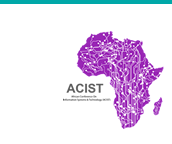Location
Malawi University of Science & Technology, Malawi
Start Date
25-8-2022 11:20 AM
End Date
25-8-2022 11:45 AM
Description
Lack of access to technologies and quality data are key challenges for reducing the digital divide and developing digital citizens to support Smart City initiatives. This paper reviews efforts towards Smart Cities and access to smart technology and Open Data in developed economies globally and in South Africa. Reviews of literature and websites were conducted and the Qualitative Content Analysis method was used to analyse the data. The contributions are the commonalities and differences between Smart City initiatives in developed economies and in South Africa. The findings revealed that in developed countries the focus was mainly on e-services, citizen engagement, Intelligent Transport Systems and energy systems. They provided city-wide connectivity and addressed integration and interoperability challenges. The technologies included large IoT sensors and WiFi in-motion networks incorporating internationally accepted standards. Initiatives in South Africa were less mature, mostly in the initial stages and are not addressing other more urgent needs of the country such as water, food, shelter and education. Collaboration with best practice Smart Cities is needed to provide support to current and future initiatives in South Africa and for the development of African digital citizens.
Included in
Business Intelligence Commons, Development Studies Commons, Public Affairs, Public Policy and Public Administration Commons
Access to Technology and Data in Smart Cities for South African Digital Citizens
Malawi University of Science & Technology, Malawi
Lack of access to technologies and quality data are key challenges for reducing the digital divide and developing digital citizens to support Smart City initiatives. This paper reviews efforts towards Smart Cities and access to smart technology and Open Data in developed economies globally and in South Africa. Reviews of literature and websites were conducted and the Qualitative Content Analysis method was used to analyse the data. The contributions are the commonalities and differences between Smart City initiatives in developed economies and in South Africa. The findings revealed that in developed countries the focus was mainly on e-services, citizen engagement, Intelligent Transport Systems and energy systems. They provided city-wide connectivity and addressed integration and interoperability challenges. The technologies included large IoT sensors and WiFi in-motion networks incorporating internationally accepted standards. Initiatives in South Africa were less mature, mostly in the initial stages and are not addressing other more urgent needs of the country such as water, food, shelter and education. Collaboration with best practice Smart Cities is needed to provide support to current and future initiatives in South Africa and for the development of African digital citizens.



